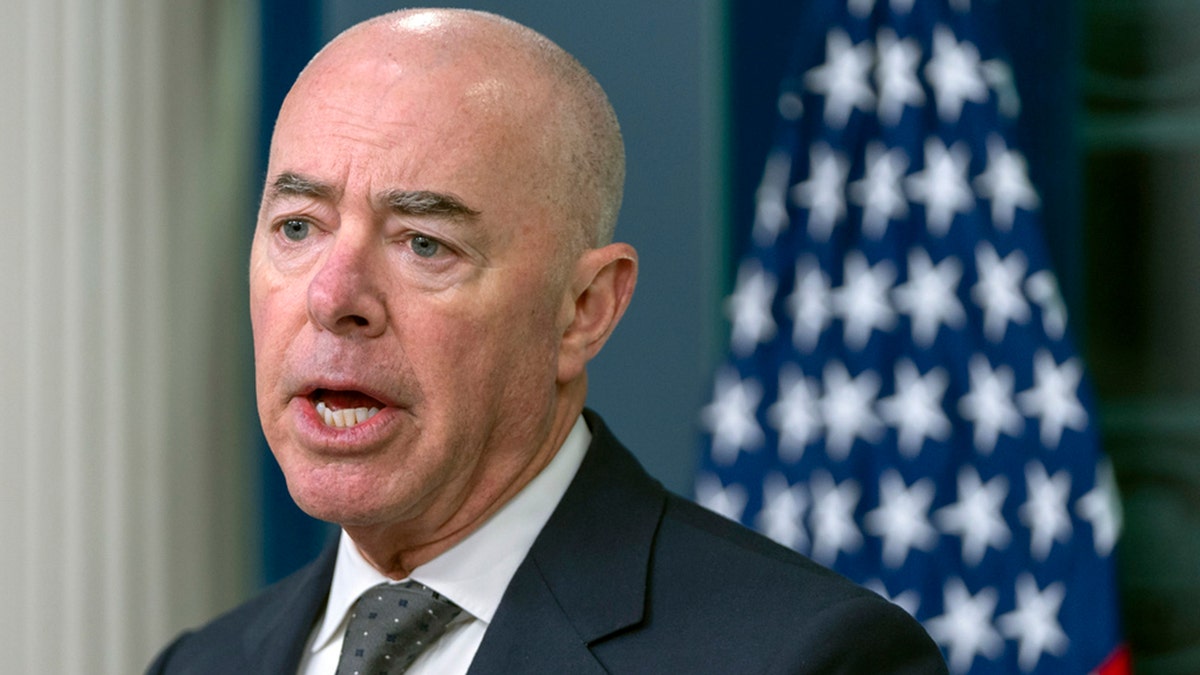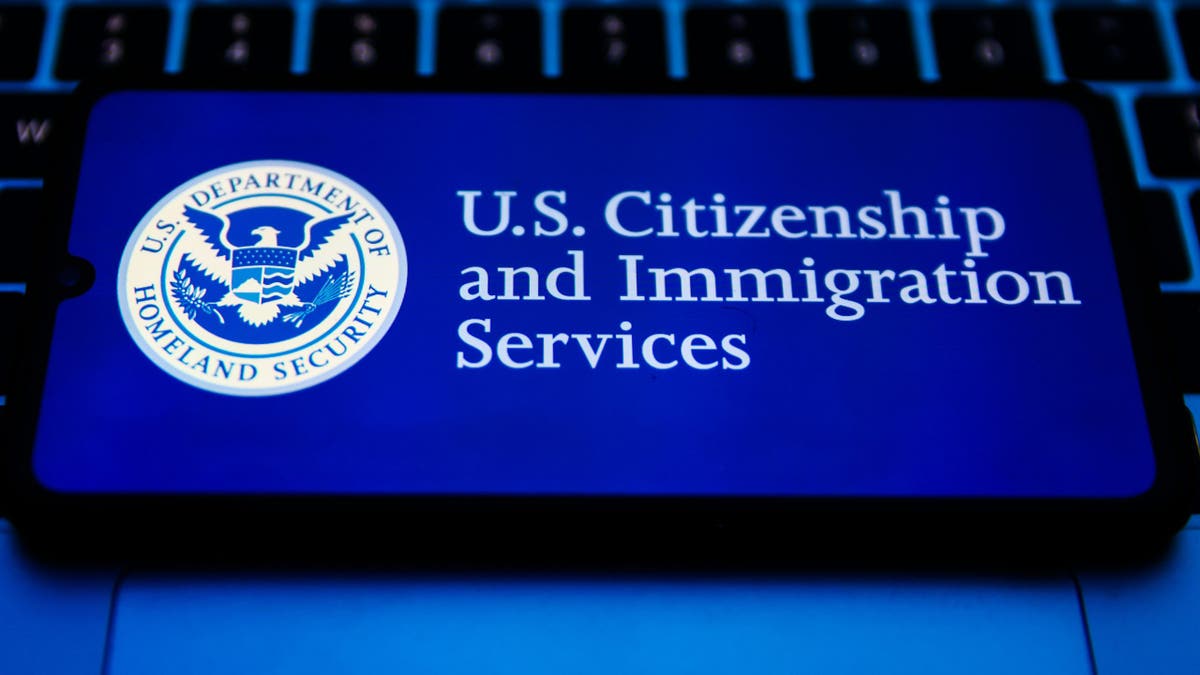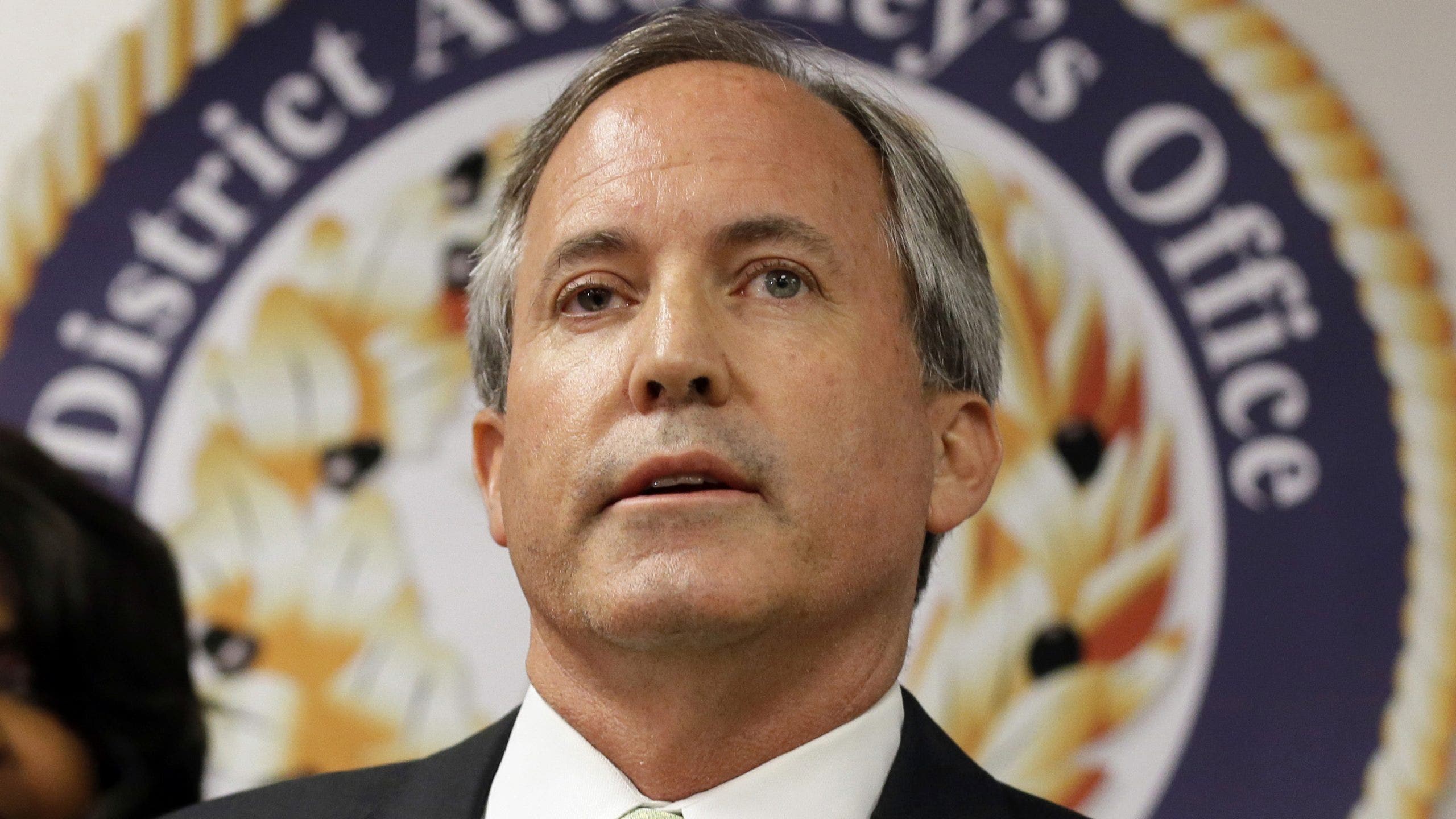Texas Attorney General Ken Paxton is suing the Biden-Harris administration for not providing information that the Republican says he needs to verify the citizenship of 450,000 “potentially ineligible voters.”
The Department of Homeland Security (DHS), its secretary, Alejandro Mayorkas, as well as the United States Citizenship and Immigration Services (USCIS) and its director, Ur Jaddou, are named as defendants.
The federal lawsuit, filed in the Western District of Texas, claims that the Biden-Harris administration has refused to comply with federal law and answer “valid requests” for information from Paxton and Texas Secretary of State Jane Nelson “for the citizenship status of the over 450,000 people on Texas’s voter rolls for whom the State cannot verify their citizenship status using existing sources.”
Paxton says those over 450,000 people did not use a Texas-issued driver’s license or ID card to register to vote in the state, so “those voters never had their citizenship verified.”
TEXAS AG OPENS INVESTIGATION INTO ‘SUSPICIOUS DONATIONS’ MADE TO HARRIS CAMPAIGN THROUGH DEMOCRATIC GROUP
Nelson wrote to Jaddou on Sept. 18 saying the Texas Secretary of State’s office compiled a list of individuals on Texas’ voter rolls whose citizenship could not be verified and asked for assistance in doing so.
Paxton penned a similar letter to the USCIS director on Oct. 7, stating, “Although I have no doubt the vast majority of the voters on the list are citizens who are eligible to vote, I am equally certain that Texans have no way of knowing whether or not any of the voters on the list are noncitizens who are ineligible to vote.”
In a letter to Nelson on Oct. 10, Jaddou responded, saying that the “Systematic Alien Verification for Entitlements (SAVE) program is the most secure and efficient way to reliably verify an individual’s citizenship or immigration status, including for verification regarding voter registration and/or voter list maintenance,” and maintained that USCIS “currently cannot offer an alternative process to any state.”
“Since 2009, SAVE has been used by elections authorities in states for voter registration and/or voter list maintenance. Currently, ten states are registered to use SAVE for these purposes,” Jaddou wrote. “The process has been the same since the program’s inception.”
“By inputting an individual’s name, unique DHS-issued immigration identifier, and birthdate, registered agencies can determine whether that person obtained U.S. citizenship through the naturalization process or, for certain other individuals born abroad, whether USCIS has information confirming their U.S. citizenship. Each registered agency determines the best process to obtain the required identifiers,” Jaddou explained. “The state elections authority must provide any individual who is not verified as a U.S. citizen through SAVE the opportunity to show documentation of their U.S. citizenship.”

BIDEN ADMIN SLAPPED WITH MAJOR LAWSUIT OVER ALLEGED REFUSAL TO HELP STATE PURGE NONCITIZENS FROM VOTER ROLLS
Paxton’s lawsuit states that “pointing to the SAVE system” does not fulfill the Texas secretary of state’s request and Jaddou’s response does not satisfy USCIS’s “unambiguous obligations under federal law.”
It also says that Jaddou has not responded to Paxton’s letter.
According to Paxton, the SAVE program, designed to confirm a person’s lawful presence in the United States, “is not an adequate tool, on its own, for a state seeking to verify the citizenship status of an individual on the voter rolls.” That’s because it requires the use of a “unique DHS-issued immigration identifier,” which the lawsuit says is “information that is not maintained by, or readily available to, the Secretary of State of Texas or Texas’s voter registrars.”
Texas’s statewide voter registration system “does not contain any “DHS-issued immigration identifier[s],” the lawsuit says, so even if the Texas Secretary of State “could obtain this data from the Texas Department of Public Safety, that effort would be limited to individuals who provided such information to obtain a driver license or personal identification card – and thus would not encompass individuals for whom there is no Texas-issued driver license or ID card number in Texas’s voter registration system.”

The filing also noted that USCIS charges users a fee for each verification submitted to the SAVE system – fees that the state is willing to pay but “will more than double over the next three years.”
“Although federal and state law prohibit non-citizens from voting, federal law paradoxically creates opportunities for non-citizens to illegally register to vote while prohibiting States from requiring voters to have proof of citizenship to vote in federal elections – a common sense measure to identify illegal registration,” the suit says. “Under any circumstances, this federal prohibition against citizenship verification makes little sense, but it is especially troubling given the current scale of the illegal immigration crisis.”
The filing also cited how the Senate has not passed the Safeguard American Voter Eligibility Act (“SAVE Act”), “which would allow states to ensure that votes are being cast legally by eligible voters.”
Asked about Paxton’s lawsuit, a DHS spokesperson again pointed to the SAVE program.
“DHS does not comment on pending litigation,” the DHS spokesperson said in a statement to Fox News Digital. “More broadly, USCIS has engaged with Texas and will continue to correspond with them directly through official channels. U.S. Citizenship and Immigration Services (USCIS) administers an online information service called SAVE that allows registered and authorized agencies, including election authorities in states, to verify certain individuals’ citizenship or immigration status.”
Scores of election-related lawsuits happen in every cycle, and Florida filed a similar lawsuit citing how the SAVE program’s DHS identifier requirement is a roadblock in verifying citizenship of those on the voter roll.
While Texas could see Republican Sen. Ted Cruz locked in a close race against Democratic challenger, Rep. Colin Allred, the Lone Star State is unlikely to go blue in the presidential contest.
Read the full article here



![An Unhinged Response to Musk’s Political Appearance [WATCH] An Unhinged Response to Musk’s Political Appearance [WATCH]](https://www.lifezette.com/wp-content/uploads/2024/10/2024.10.18-04.25-lifezette-67128c09b0eca.jpg)


![Trump Admin Cuts Red Tape and Saves Taxpayer Money [WATCH] Trump Admin Cuts Red Tape and Saves Taxpayer Money [WATCH]](https://www.rvmnews.com/wp-content/uploads/2025/02/2025.02.06-01.28-rvmnews-67a4b8e157141.jpg)


![Marco Rubio Targets Visa-Holding ‘Lunatics’ with Zero-Tolerance Plan [WATCH] Marco Rubio Targets Visa-Holding ‘Lunatics’ with Zero-Tolerance Plan [WATCH]](https://www.rvmnews.com/wp-content/uploads/2025/03/2025.03.17-10.19-rvmnews-67d7f72815041.jpg)
